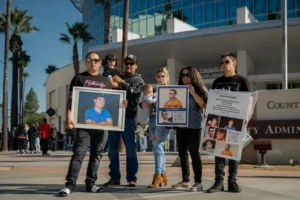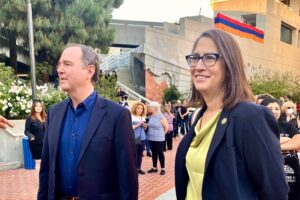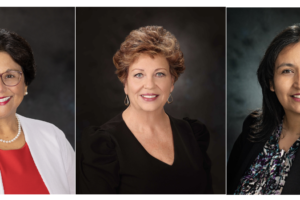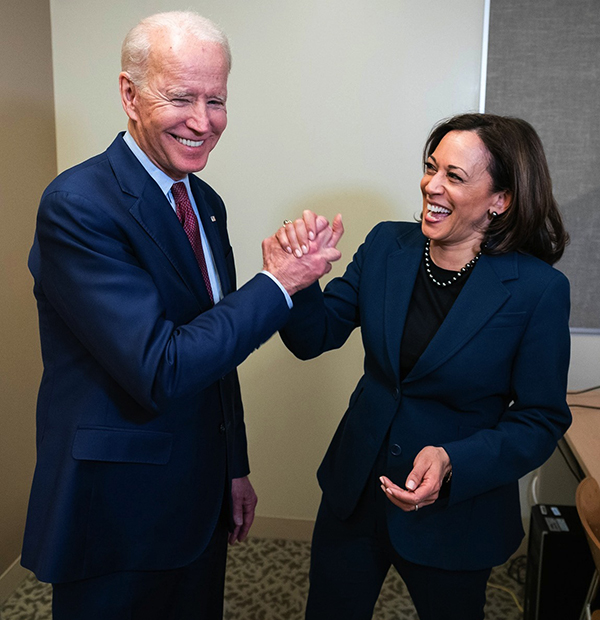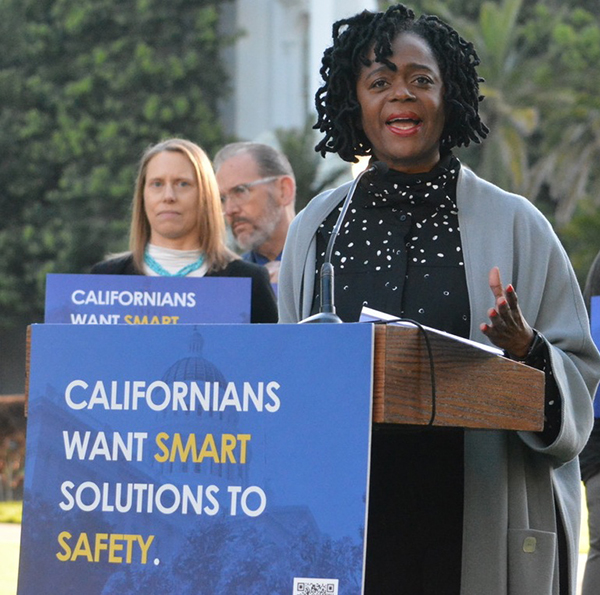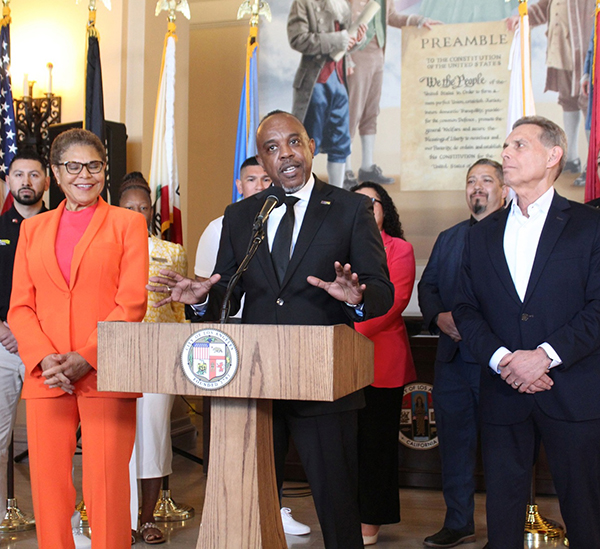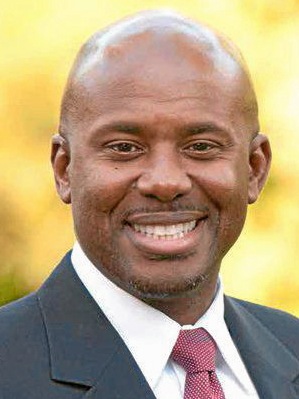By Sue Favor
Contributing Writer
LOS ANGELES — A year of cataclysmic changes featured plenty of political upheaval.
From national to local races, voters sent the message loud and clear that they wanted change. The people elected a new president and vice president in a history-making race. And Los Angeles County now has a number of new officials in key posts.
President Donald Trump’s failure to institute a COVID-19 pandemic plan ignited a national movement to vote, and a fervent call for voter registration. Millions of voters began casting ballots in October, which resulted in more than 161 million votes in the general election – more than any other U.S. presidential election in history.
When all the votes were counted, Democratic challenger Joe Biden and his running mate Kamala Harris made history, as Harris became the first woman — and the first person of color — to be elected vice president. Biden has since appointed a diverse cast of women and men of different backgrounds and national origins to various cabinet posts. And both he and Harris have stated publicly that a pandemic plan and climate change are top priorities, which will differ significantly from the approach of the Trump administration.
“As we approach Christmas and the start of Kwanzaa, please do your part to keep yourself and those around you safe: wear a mask, keep a safe social distance, and limit your travel,” Harris tweeted Dec. 23. “Joe Biden and I know it’s hard, but we need to stay apart just a little longer.”
In L.A. County, the most contentious race was for district attorney between incumbent Jackie Lacey and challenger George Gascón.
Lacey, who was elected to the post in 2012, was known for her punitive approach toward criminals. Under her watch, the county won several high-profile cases. But she was also criticized for not taking that same approach toward police in use-of-force cases.
Gascón is a former LAPD officer who was police chief in Mesa, Arizona, and San Francisco before becoming district attorney there nine years ago. He is a champion of prosecution reform and co-authored an initiative that reclassified several felony offenses to misdemeanors.
In the March primary, Lacey received 48% of the vote, while Gascón garnered 28%. But a summer full of social injustice protests that focused on police brutality turned the tide on Lacey. In the fall, a number of officials, including Los Angeles Mayor Eric Garcetti, rescinded their endorsements of her and instead, gave the nod to Gascón. He won with 54% of the vote.
After being sworn in earlier this month, Gascón announced a series of policy changes for the office that include a ban on prosecutors seeking longer prison sentences, a ban on cash bail and rules that give more leniency to low-level offenders.
As of last week, two of Gascón’s prosecutors have commented publicly that the new policies are preventing them from doing their jobs, and are allowing dangerous criminals to be released. In Kern County, District Attorney Cynthia Zimmer’s wrote an opinion piece on Bakersfield.com, saying she will “pray for victims in L.A. who are being abandoned by their district attorney and oppose nearly every policy for which Gascón stands.”
It could be a long four years for the D.A.’s office.
Another closely watched race was for the 2nd District seat on the county Board of Supervisors. Termed-out L.A. City Councilman Herb Wesson looked to have an advantage going into the year, with $500,000 in contributions from the Association for Los Angeles Deputy Sheriffs alone. But in the primary, Wesson mustered just 29.9% of the vote, forcing a runoff with state Sen. Holly Mitchell, who received 29% of the vote.
The candidates came from opposite sides of the tracks.
Wesson, a 33-year politician, had served as chief of staff to former county Supervisor Yvonne Brathwaite Burke before being elected to the state Assembly in 1998. He had been the councilman from the city’s 10th district since 2005, serving as council president from 2011 to 2018.
Mitchell was CEO of the nonprofit child and family development organization Crystal Stairs before being elected to the state Assembly in 2010. She won a special election to repla ce Curren price in the 30th state Senate District in 2013.
Momentum swung toward Mitchell, who had previously championed police reform, during the social unrest of the spring and summer. Wesson, who had coveted police union endorsements for years, suddenly found himself on the defensive.
Mitchell received Gov. Gavin Newsom’s endorsement, as well as those from health care worker unions, and won the general election in November with 61% of the vote.
The five-member board now consists of all women for the first time in its history. Since being sworn in earlier this month, Mitchell has flowed seamlessly into the job. Wesson, on the other hand, has dropped out of sight for now.
The race to fill Wesson’s spot was between career politician Mark Ridley-Thomas, who was termed out in the Ccunty Board of Supervisors seat for which Mitchell and Wesson were running, and challenger Grace Yoo. Ridley-Thomas received 44.3% percent of the vote in the primary, and Yoo received 23.6%.
The 10th District represents mid-city, mid-Wilshire, West Adams, Harvard Heights and parts of Koreatown — an area in which a large part of the population are renters, during a pandemic that has pushed many to the point of eviction.
Ridley-Thomas has served in the state Legislature, and as District 8 City Councilman. He has a long history of support for racial justice and police reform.
Yoo, who runs her own law firm, is the former executive director of the Korean American Coalition of Los Angeles, and ran for the council seat five years ago. She positioned herself as a political outsider and campaigned on the need to make policy changes.
With support from most of the political establishment, Ridley-Thomas easily coasted to victory in the general election, with 60.6% of the vote.
He seems acutely aware of the challenges that lie ahead in his new district.
“I interpret my election to return to the City Council as nothing short of a moral mandate to address the defining civic issue of our time, and that is homelessness,” Ridley-Thomas said.
The election also produced new elected officials representing Hollywood on the Los Angeles City Council and in West Hollywood and Culver City.
Nithya Raman, a homeless advocate and former executive director of Time’s Up Entertainment, a nonprofit that works against sexual harassment and abuse in the workforce, was elected to the 4th District seat on the Los Angeles City Council, defeating David Ryu who served only one term.
She received 52.87% of the vote Nov. 3, to Ryu’s 47.13% after trailing Ryu by 3% in the March primary.
In West Hollywood, two longtime members of the City Council, John Heilman and John Duran, were defeated in the Nov. 3 election.
Sepi Shyne and John Erickson outpolled the incumbents and nine other challengers. Heilman, who had served on the council since the city incorporated in 1984, finished third and Duran, who was elected in 2001, finished fifth.
In Culver City, voters elected two new members to the City Council and Mayor Goran Eriksson narrowly won election to a second term in voting Nov. 3
Albert Vera was the leading vote-getter and Yasmine-Imani McMorrin finished second in the voting. Eriksson finished only 28 votes ahead of fourth-place finisher Freddy Puza.
Incumbents Thomas Small and Meghan Sahli-Wells did not run for reelection. Sahli-Wells was termed out of office.
In the race for the Culver City school board, incumbent Kelly Kent was reelected and Paula Amezola De Herrera won her first term on the board, unseating incumbent Anne Allaire, who finished fourth.
Sue Favor is a freelance reporter for Wave Newspapers, who covers South Los Angeles. She can be reached at newsroom@wavepublication.com.




